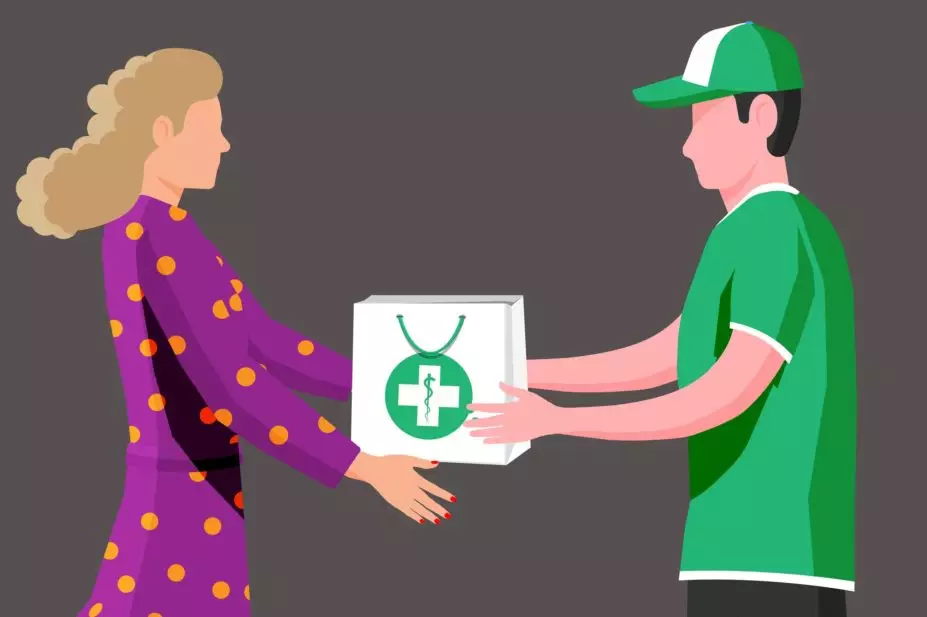
Mclean/Shutterstock.com
I used to drive a double-decker bus in Bristol, but 11 years ago I decided to make a change, and took up a role as a delivery driver for the city’s Bedminster Pharmacy. The job advert read: “Delivering medications to patients who live within a local radius of the pharmacy”. It seemed simple enough, especially as I already knew the quickest routes around the city. Never did I anticipate my work could have such an impact on an individual’s care, however.
Even before the COVID-19 pandemic, my job encompassed so much more than just driving or being a medicines courier. For a long time, our pharmacy delivery service has been offered exclusively to our vulnerable housebound patients who are unable to access their medications any other way. There is no charge — and rightly so. I do not believe patients who cannot collect their medications from the pharmacy should be penalised.
When the funding cuts were announced in 2016, Ade Williams, the pharmacy’s superintendent pharmacist, suggested that charging may be necessary, but I promised to find cost savings to help offset the need, which I did. Most of our patients would not have been able to afford to pay anyway. I deliver prescription medications to mostly frail elderly individuals; the service is a necessity to them, not a luxury.
My interactions with the patients to whom I deliver medicines may be one of the few they have with anyone in the community. So, I aim to make every contact count. I build trust and rapport with my patients so that they feel comfortable enough to ask for help or any additional assistance.
Before the pandemic, I made an intervention when delivering medication to a diabetic patient. He looked unwell and said he felt “woozy” when I asked how he was. I quickly questioned if he had eaten his breakfast. The patient explained that he had not eaten yet as he was waiting to be administered his insulin by his nurse before food, as instructed. Unfortunately, his nurse had been delayed. Being diabetic myself, I understood the risk he was facing. I immediately contacted the pharmacies who were able to intervene appropriately and also alert other providers, including the GP.
When lockdown struck, we still managed, even though I wasn’t able to check up on some of the very vulnerable patients I once saw regularly. I had socially distanced chats with my patients and, often, I picked up milk, bread, eggs, teabags and other necessities that my patients needed. I could also check in with my patients over the phone.
The national pandemic delivery service saw volunteers across England helping pharmacies to get medicines to patients, and our volunteers eased the burden of delivering to more and more people, and boosted the morale of our team. They are all from a running group called ‘This Mum Runs’ and are a great example of community spirit in times like this.
Unfortunately, the national pandemic delivery service ended on 31 July 2020, meaning we would go back to delivering to just our most vulnerable patients.
Many of the people I see tell me they don’t want the service to end as they struggle to adjust to the recent changes in government guidance. I’m worried there are still too many people at home that need deliveries. I can see that many of my patients have anxiety and trauma because of the pandemic.
It’s going to be a slow process for them to feel ready to venture out and my fear is that some may go without their medication because they cannot collect from the pharmacy and do not have anyone close to them that can.
Ade asked me if I wanted to continue running our usual service delivering medicines as he was worried about the risk posed to me by COVID-19, but I did not hesitate to say yes. The rest of our team were working flat out and so exhausted. Who would then care for my patients?
My interaction with patients positively influences their perception of the pharmacy. If something is wrong, I tell them to speak to the pharmacy and they do so, confidently. It’s important not to underestimate the interventions we make as delivery drivers. They may not seem big but can really improve the quality of care.
The NHS would benefit from having more delivery drivers offering the services and signposting I provide. We should continue to be funded to do so, primarily for the elderly, vulnerable and lonely. We support their independent living and quality of life.
Shirley Jamieson, delivery driver, Bedminster Pharmacy


